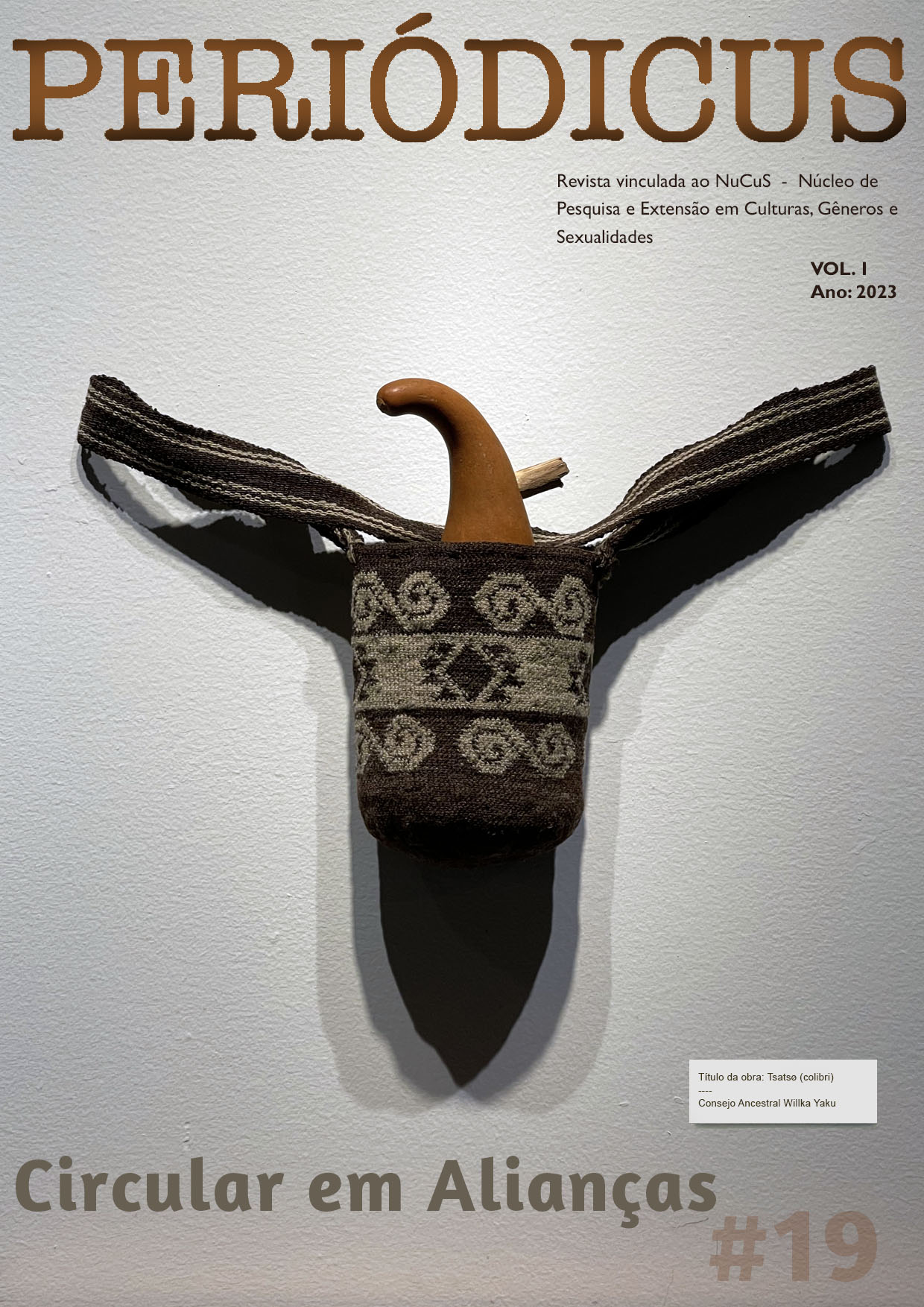RESENHA: Histórias LGBTI+
resgatar os passados, agir no presente e imaginar os futuros
DOI:
https://doi.org/10.9771/peri.v1i19.51804Resumo
Resenha da obra Movimento LGBTI+: uma breve história do século XIX aos nossos dias, publicado em 2022, por Renan Quinalha, cujo propósito se volta para capturar silenciamentos e projetos de esquecimento das diversidades sexuais e de gênero para, assim, catapultar esse movimento político à cena pública atual. Organizada em cinco capítulos, o autor discorre sobre ativismos políticos organizados na Alemanha do século XIX, Estados Unidos pós-Segunda Guerra Mundial para chegar ao cenário brasileiro de hoje. Urgente e provocadora, a obra se lança ao desafio de aparecer frente ao projeto de ocultamento conservador e gritar diante das violências cotidianas enfrentadas por nós. Aberto para públicos da academia e para além dela, o livro chega em um momento chave no país e se configura em um convite para alianças e comunhões de re-existências e resistências.
Downloads
Downloads
Publicado
Como Citar
Edição
Seção
Licença
Copyright (c) 2023 Maurício João Vieira Filho, Ricardo Desidério

Este trabalho está licenciado sob uma licença Creative Commons Attribution-NonCommercial 4.0 International License.
Autores que publicam nesta revista concordam com os seguintes termos:
Autores mantêm os direitos autorais e concedem à revista o direito de primeira publicação, com o trabalho simultaneamente licenciado sob Licença Creative Commons Attribution Noncommercial que permite o compartilhamento do trabalho com reconhecimento da autoria e publicação inicial nesta revista, sendo vedado o uso com fins comerciais.
Autores têm autorização para assumir contratos adicionais separadamente, para distribuição não-exclusiva da versão do trabalho publicada nesta revista (ex.: publicar em repositório institucional ou como capítulo de livro), com reconhecimento de autoria e publicação inicial nesta revista.
Autores têm permissão e são estimulados a publicar e distribuir seu trabalho online (ex.: em repositórios institucionais ou na sua página pessoal) a qualquer ponto antes ou durante o processo editorial, já que isso pode gerar alterações produtivas, bem como aumentar o impacto e a citação do trabalho publicado (Veja O Efeito do Acesso Livre).








